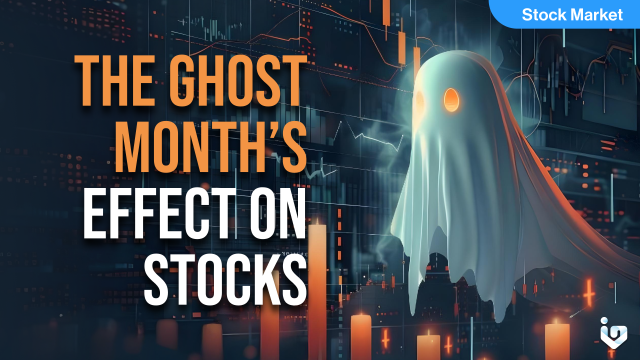In the realm of finance, superstitions and cultural beliefs can sometimes play a surprisingly significant role in influencing investor behavior. One such belief is the impact of the “Ghost Month” on stock markets, particularly in countries where traditional Chinese culture is influential. The Ghost Month, which falls on the seventh month of the lunar calendar, is a period where it is believed that spirits roam the earth. This time is often associated with caution and conservatism in various aspects of life, including investment decisions.
Understanding Ghost Month
To comprehend the Ghost Month’s effect on stocks, one must first understand its cultural significance. According to tradition, the gates of the afterlife open, allowing spirits to visit the living. Many people engage in activities to appease these spirits, such as offering food or burning joss paper. It’s a time for remembrance and respect, but also caution, as disturbing these spirits is considered bad luck.
Market Sentiment During Ghost Month
Investor sentiment during Ghost Month tends to be more cautious. Some investors choose to hold off on making significant decisions, such as large investments or initiating new business ventures. This cautious approach can lead to decreased trading volumes and a general slowdown in market activity. Historically, this has sometimes resulted in stagnant or declining stock prices during the month.
Analyzing Historical Data
A look at historical data shows mixed results regarding the Ghost Month’s impact on stock markets. While some years have seen downturns in stock performance during this period, others have not shown any significant correlation. This inconsistency suggests that while cultural beliefs may influence individual investor behavior, broader market trends and economic factors play a more substantial role in determining stock performance.
Strategies for Investors
For investors who observe the Ghost Month, the period can be used as a time for reflection and planning. It’s an opportunity to review portfolios, conduct research, and prepare for activity once the month concludes. For those who do not observe these traditions, it can be a time to take advantage of potentially lower stock prices to buy undervalued stocks.
Conclusion
The Ghost Month’s effect on stocks is a fascinating intersection of culture and finance. While its impact may not be universally significant, it serves as a reminder of the diverse factors that can influence market behavior. Whether or not one chooses to adjust their investment strategy during this time, it’s always wise to make decisions based on thorough analysis and sound financial principles.

